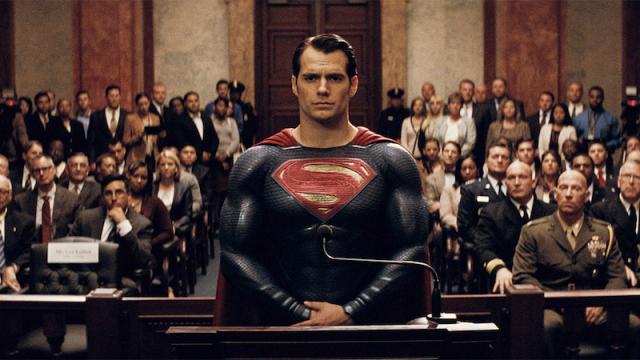Earlier this week, the New York Times published a short profile on the current state of Warner Bros. titled “Warner Bros., Quietly Thriving, Recasts Its Own Story”. That article repeats a refrain we’ve heard from this company before: Why does everyone keep saying we’re in trouble? All those badly-reviewed movies still made money.
Image: Warner Brothers
The article draws a lot on the spin of Warner Bros. Entertainment CEO Kevin Tsujihara, which betrays a frustration with the way the creative decisions of the studio has overshadowed the profits it has made. In particular is this passage:
Yet many people consider Warner Bros. a troubled operation, a notion that Mr. Tsujihara thinks is rooted in an underappreciation of the studio’s wide-ranging businesses and the lingering effect of film pipeline problems that it has moved past.
“Quietly, we’ve been having an amazing year,” he said. “The narrative, over all, has not reflected that.”
And this one:
This year, for instance, some reporters and bloggers took gleeful delight in beating up Warner over the poor critical response to “Batman v Superman: Dawn of Justice” and “Suicide Squad.” Lost in the criticism, Mr. Tsujihara and other members of his executive team think, has been the films’ financial success: “Dawn of Justice” and “Suicide Squad” collected a combined $1.6 billion [$AU2 billion] worldwide.
First of all, if the studio wants to move past the perception that it has problems with its movie productions, it should try to stop publicly bleeding directors over “creative differences” and having stories about how bad The Batman script is. Second, and most importantly, no one has ever said these movies didn’t make money — many “reporters and bloggers” have pointed out just that. But also, many more have said a) these movies weren’t good, and b) these movies didn’t make as much money as they could have, because they weren’t good.
Dawn of Justice and Suicide Squad may have made $US1.6 billion ($2 billion) combined, but Captain America: Civil War made $US1.15 billion ($1.4 billion) by itself. And you can bet that Warner Bros. was hoping to make similar amounts per movie with those two.
If a franchise makes a lot of money while lingering below 30 per cent on Rotten Tomatoes, you can respond in what I’ll call the “Michael Bay’s Transformers” way: Care not a single bit about the critical response and double-down in the sequel, while bathing in all the money you’ve made.
That seemed to be Warner Bros.’ initial response after Man of Steel. And then Batman v Superman took a critical beating. And Suicide Squad. Then, in May, the studio tried to scrub the whole thing clean by announcing Geoff Johns and Jon Berg were going to be in charge of the movies. That seemed like an admission that things hadn’t turned out the way they’d hoped.
Now, Warner Bros. is complaining that “the narrative” doesn’t acknowledge their financial success. You can’t do that when a) that success wasn’t nearly as high as expected; b) the criticism of that narrative focused on the quality of the films; c) the studio’s actions — like putting Johns in charge instead of Zack Snyder — acknowledge that the criticisms are valid.
From the audience’s perspective, it’s a good thing that the studio sees “the narrative” as their enemy, that it’s frustrated that “the narrative” is supposedly not patting the studio on the back about how much money it makes. Because a focus on the bad quality of the films over the box office means an incentive to make better movies. It’s an incentive the Transformers movies never had because all anyone every cared about in that case was how much money they made.
In the case of Warner Bros., the narrative in the press — which the Times article says has been reflected in the questions it gets from analysts and investors — is all about how bad the movies are, not how much money they made. It’s a concern for them if for no other reason than that it could impact the bottom line of their future films because people won’t go to see a movie from a studio they have been told repeatedly makes bad movies. This gives Warner Bros. a reason to make better films, which audiences benefit from.
Warner Bros. really wants to get out of the spotlight for their misfires. The easy way to do that — that is, the one that doesn’t involve rethinking their whole strategy — is to convince the press (like it apparently did with the New York Times) and the public that the real story is how successful they are.
The hard way — the one that gets us better movies — is for them to swallow this bitter pill and wow us. Wonder Woman is doing a great job of doing that. If only the studio would shut up and let the movie speak for itself.
